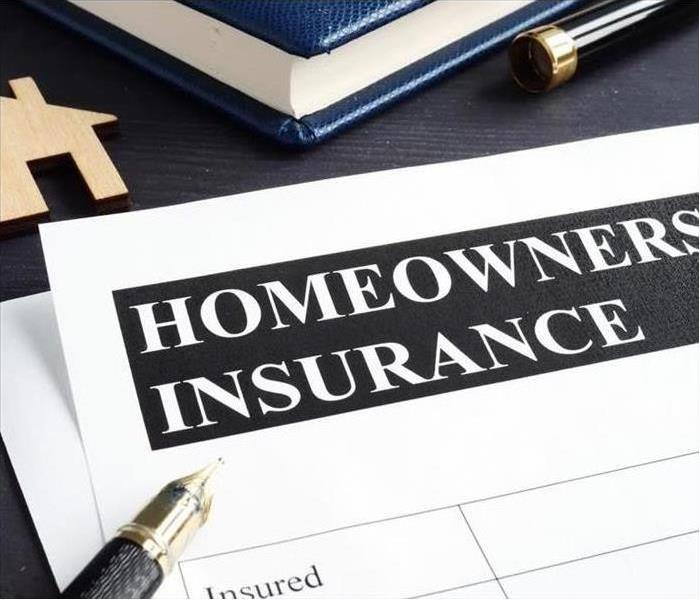4 Homeowners Insurance Terms You Need to Know
11/14/2020 (Permalink)
 SERVPRO of ECGLH will work with your insurance company to make sure things get back to the way they were.
SERVPRO of ECGLH will work with your insurance company to make sure things get back to the way they were.
Owning your own home can be a rewarding experience, but it can also be expensive. Not only do you have to constantly maintain your home, but there are risks you can't control, such as flooding and fire. For this reason, if you own a home, you need homeowners insurance, which will cover some or all costs of covered disasters. To better protect your home, check out these four insurance terms you need to know.
1) Peril
A peril is anything that could risk damage to your home, and it's one of the main reasons to have homeowners insurance because the insurance company may pay some or all repairmen/replacement costs. Not all perils are included in most homeowners insurance policies. In general, however, they cover the most common types of perils, such as theft or fire.
If you live in an area with frequent flooding, you may be able to purchase additional insurance to protect against flood damage. Most general policies exclude flood damage unless the damage was sudden and unexpected, such as a new washing machine that fails and floods your laundry room.
2) Catastrophe
Flood insurance is actually a type of catastrophe insurance. A catastrophe is a disaster (man-made or natural) that causes significant damage. It can be one major event or a handful of events that devastate your property. Catastrophes are not usually covered under your standard insurance policy, but they may be necessary if you live in an area with lots of earthquakes, flooding, tornadoes or hurricanes.
Catastrophe insurance comes in many forms. If you really want to protect everything you own from flooding or terrorist attacks, you can get a policy that will cover the property and everything inside. For a cheaper premium, however, you can also choose a policy that only covers the house and nothing inside.
3) Actual Cash Value
When your insurance carrier reimburses you, they may give you the actual cash value (sometimes referred to as market value). This will provide money to repair or replace the damage after considering depreciation. For example, if your deck is destroyed, but it was getting old anyway, the insurance carrier will take the age into account. In other words, they may not give you enough to actually cover the total replacement.
If the deck was brand new, however, there is less depreciation, so you may not have to pay any out-of-pocket expenses. In this case, the insurance carrier would give you the replacement value. Regardless of what type of coverage you have, however, they will only provide money for similar materials and quality. You can't have the insurance carrier replace your damaged asphalt roof with a tile shingle roof.
4) Exclusion
Every insurance policy has exclusions. Exclusions are disasters and instances when the insurance carrier will not reimburse you. Exclusions usually include any damage that was related to maintenance issues or damage that was easy to control. Even if you take great care of your home, parts need to be replaced. Insurance will not cover these routine repairs.
In most cases, the policy will have an actual section detailing all the exclusions (all-risk policies), so you can immediacy know what is and what is not covered. A peril-specific policy, which only covers a handful of disasters, will list what is covered. Anything else is considered an exclusion.
Don't gamble with your property by neglecting to purchase or have enough homeowners insurance. It can be the difference between losing your home and repairing it after a disaster.



 24/7 Emergency Service
24/7 Emergency Service